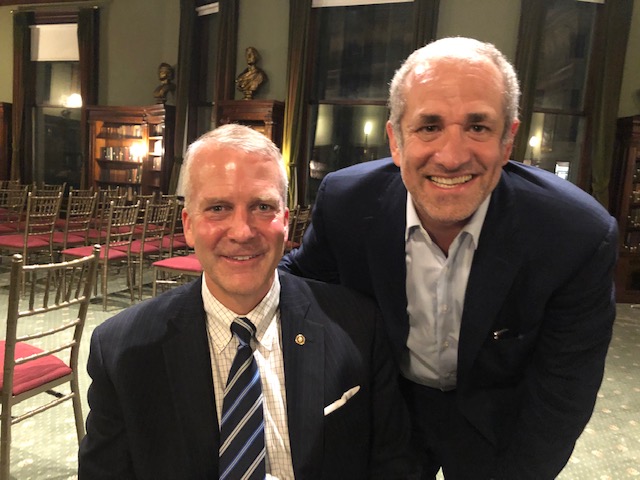
Stephen Odzer: How Israel’s Technological Companies Are Working to Combat the Coronavirus
The fight against COVID-19 involves many nations trying to keep it from spreading, but it’s not an easy one by any means. Stephen Odzer explains how Israel’s tech sector is helping.
There are a lot of different ways that people are trying to employ to prevent the further spread of COVID-19. Unfortunately, however, the battle is certainly an uphill one, as we are still a fairly long way out from a vaccine being developed. As a result, many of the solutions are more about preventing those affected by COVID-19 from causing others to contract it. In one such case, the Israeli technology sector has been hard at work, trying to develop ways that people can do this more easily, and Stephen Odzer explains how they’re doing it.

Stephen Odzer on How The Israeli Tech Sector is Combating Covid-19
Stephen Odzer notes that there are a lot of at-risk groups when it comes to covid-19, and one of the groups that puts themselves most at risk are medical specialists, who have to not only have frequent contact with patients, but also have to deal with a constrained supply of personal protective equipment (PPE). Stephen Odzer finds it especially sad how medical personnel are forced to improvise to the extent that they are. Thankfully, the Israeli tech sector is hard at work, creating ways around this. One of the ways is through an experimental surgical mask that contains a virus-neutralizing sticker. This was developed at the Galilee Medical Center, and the sticker was created using 3D printing by the Technion-Israel Institute. Stephen Odzer explains that the sticker uses nanofibers to capture nanoparticles and, if things work out, disinfect any viruses caught in those nanoparticles, including the coronavirus. Meanwhile, even high school students are getting in on it, Stephen Odzer explains. Students are producing robots that can help in situations where contact with patients would not be entirely safe for medical personnel. This remote-controlled robot is not only able to deliver both medicine and food but also has a two-way screen that allows the staff to communicate with patients as needed.
One of the big problems many countries face, Stephen Odzer notes, is when they have to rely on other countries for their supplies. Countries are struggling to supply their own citizenry with PPE and other necessary supplies, much less when they are providing them for other countries. In order to not be dependent on other countries for this, Naomi Habib, professor at the school’s Edmond and Lily Safra Center for Brain Science, proposed using small magnets to help Israel with COVID-19 testing and reduce how much is needed for each test. These are just some examples of how technologists from Israel are doing their duty to help fight COVID-19 — not only at home, but abroad as well. Stephen Odzer looks forward to seeing how things develop as time goes on.
